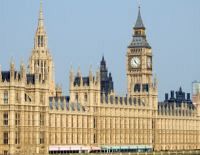

The manifestos have been released and with them an outline of what to expect for several key industries and sectors should any of the parties be elected.
With that in mind, the health and safety and the environmental sectors can each expect some kind of impact of varying degree, depending on which Party comes out on top.
In this instalment "Picking apart the Party policies" series, Cedrec Legal Author, Amy Batch, looks at the Liberal Democrats. Key issues will be examined with a degree of insight from Cedrec.
Environment
The environment and new legislation is a big part of the Liberal Democrat agenda, with five new "Green" laws planned.
The Zero Carbon Britain Act will set a new, legally binding, target to bring net greenhouse gas emissions to zero by 2050. This is a highly ambitious target, especially considering the news that the Government's current plans are missing targets already. Essentially, there is a lot of catching up to do in order to achieve zero carbon in 35 years.
The Nature Act will require the Government to make a 25 year plan for recovering nature. This is a positive step towards maintaining Britain's natural beauty, which doesn't have to be compromised to make way for new technologies. The Nature Act also wants to make a one million square kilometre southern Atlantic Ocean reserve. This could mean it is a "blue belt" type area, where it is to be left untouched, from fracking to oil extraction and so on.
The Resource Efficiency and Zero Waste Britain Act will make a 70% recycling rate statutory in England. This, of course, is not 100%, or "zero" however it is a step in the right direction. To encourage it, the penalties for waste crimes will be increased by 50% - a move from an average fine of £50,000 to £75,000 and an average sentence of 18 months, up from 12 currently.
Greener transport is tackled in the appropriately named Green Transport Act. In this, all cars on the road must meet low emissions by 2040. This will prove a challenge as cars age and prices soar. The current Government implemented a bursary towards buying a qualified electric car. They did this because buying electric cars is still more costly than a regular petrol or diesel. A Nissan Leaf is arguably the most well-equipped to deal with a wider range of buyers, the family, to the extent that it is a favourite with environmentally friendly taxi firms. This is due to it being a mid-sized car, compared with the usually smaller offerings found elsewhere. Yet even so, the OTR (on the road) price for the most basic model is over £16,000. A similar car in terms of size, speed and family needs would be a Vauxhall Astra, which comes at a basic OTR price of just under £12,000. The Government will need to bring in more incentives and ensure choice is available in terms of electric cars.
Finally, the Green Buildings Act wants to give Council Tax discounts for homes with significant energy efficiency improvements. This may or may not be met well. On one hand, you can have a homeowner with spare funds available to get wall and loft insulation and new double glazing, at a cost of up to a few thousand pounds. On the other, you have a rented home, where the tenant is not legally entitled to make such changes. The landlord is the responsible party, but they aren't the ones paying council tax. The Lib Dems go on to say they want an energy rating of at least C for all social and private rented properties, however even in their manifesto they call this "ambitious". Funding and a tax cut don't always mesh so well. Even so, back to the council tax discount, what constitutes significant, and will the Government help those who genuinely do want a more efficient home?
Policies include "Increase research and development and commercialisation support in four key low-carbon technologies where Britain could lead the world: tidal power, carbon capture and storage, energy storage and ultra-low emission vehicles." This is a policy any green thinker could get behind. Britain needs to improve the infrastructure, invest in technologies and establish themselves as world leaders for accomplishments and innovations, not because we're a "wealthy" country. When countries such as Costa Rica are putting our own green efforts to shame, serious considerations regarding how well-equipped we are to deal with targets come into mind, not least because the fines we face are severe.
They aim to set a legally binding decarbonisation target range for 2030 for the power sector of 50–100g of CO2 per kWh, which can largely be achieved by expansion of renewables, with an indicative target of 60% of electricity from renewable sources by 2030. More targets, more expectations, and only vague ideas of expanding renewables. Unlike other Parties, the Lib Dems are fine with onshore renewable energy sources, which will include windfarms.
Establishing a Low-carbon Transition Fund using 50% of any tax revenues from shale gas to fund energy efficiency, community energy, low-carbon innovation and renewable heat is another policy of note. Shale gas is a topic of great debate, and is extracted via fracking. Fracking is a dirty word in terms of environmentally friendliness, right up there with coal and oil. Shale gas has quite an even split in terms of who thinks it is more damaging than the aforementioned fossil fuels, whilst others think it is a "better than nothing" alternative, meaning they believe it to be less detrimental than using those other resources. If the Lib Dems are on the side that believes it is less damaging, fair enough, but the campaign to "keep it in the ground" seems pretty hard line.
Health and safety
Specifically, the Sports Ground Safety Authority must designate safe standing areas. In other areas of safety legislation, not much seems to be said in the manifesto.
For more information, see the: